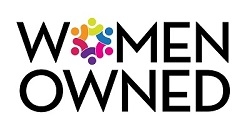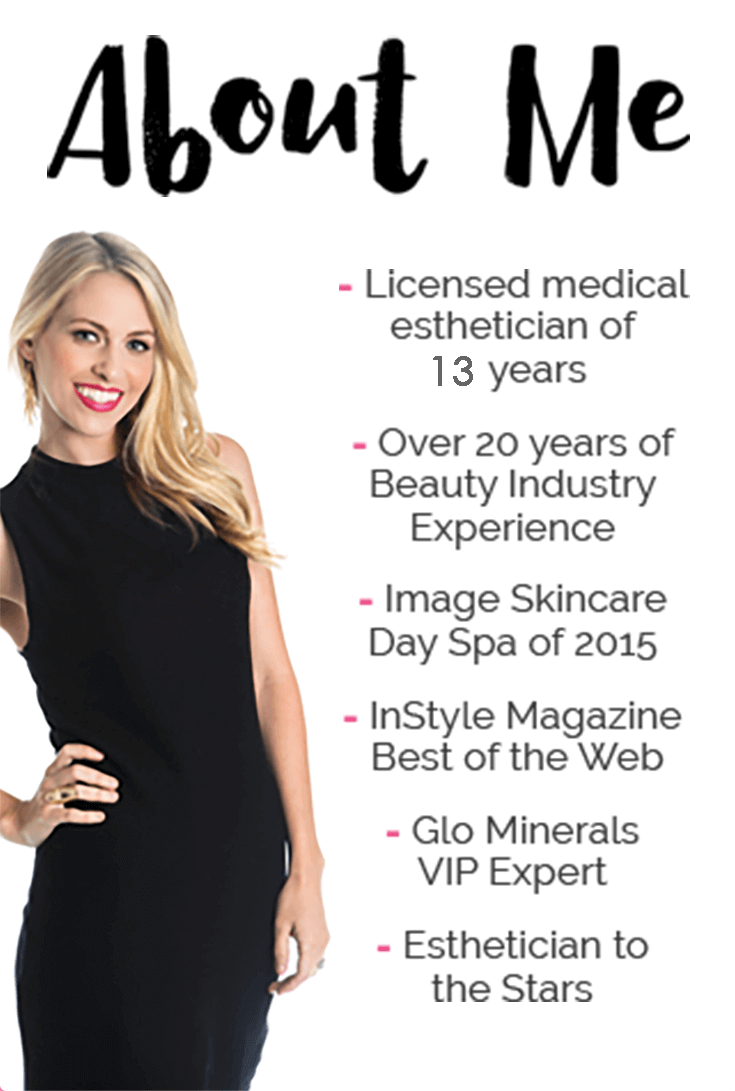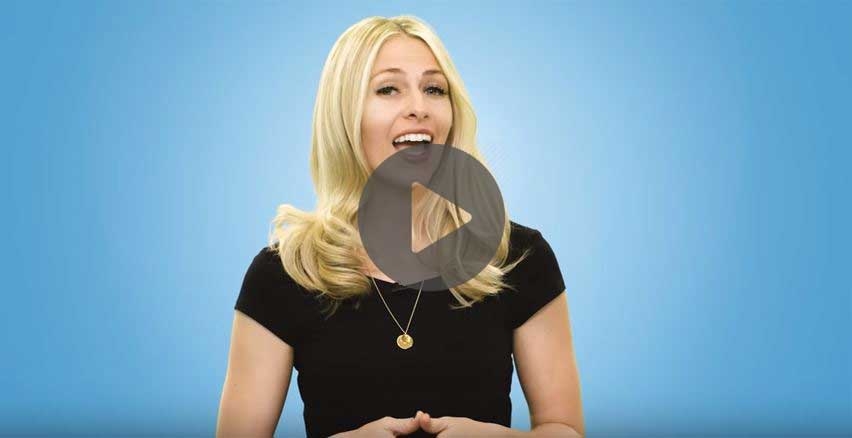What Should You Be Using In Your Skin Care Routine?
Take my quiz and get personalized recommendations from a
licensed esthetician!
If You Love Head Massages, You’ll Love This
When I go and get my hair done, I always look forward to my stylist washing my hair.
I’m sure plenty of you will agree with me that the head massage is the best part.
When I try and give myself a massage in the shower, it just doesn’t seem to feel as good!

We care about how our hair looks and feels.
But what about our scalp?
There’s a direct correlation between our scalp health and our hair health.
It’s easy to forget that we can take the same steps to care for the skin on our head as the skin on our face.
Scalp facials are a popular way to give your head some TLC.
But how are scalp facials different from regular facials?
Are they even worth trying?
Isn’t washing my hair in the shower good enough?
Let’s clear up the confusion.

Why Does Scalp Health Matter?
It all starts with taking care of your hair follicles.
If you want to have healthy hair, taking care of your scalp is the first step.
We all want our hair to look and feel its best, but this won’t happen if we’re just ignoring our scalp.
There are common scalp conditions that can be annoying and embarrassing if you’ve ever experienced them.
These include:
- Dandruff: characterized by dryness, itchiness, and flakes. Seborrheic dermatitis is often an underlying cause.
- Oiliness: characterized by a “greasy” look and feel. Is caused by excess sebum production, which can be a result of genes, hormones, humidity, or diet.
- Dryness: characterized by flakes, itchiness, or brittle hair. Is caused by the weather, using the wrong shampoo, over-processing the hair, or genes.
And, just as bacteria can cause acne and irritation on your face, it can also affect the hair follicle.
Other causes of scalp irritation include:
- Dirt and buildup: You may have heard about changing up your shampoo and conditioner every couple of months, or using a clarifying shampoo once a week. This is due to product residue buildup, which can clog hair follicles, stunt hair growth, and give it a dull appearance.
- Hard water: The minerals combine with your hair’s natural oils to create a greasy feeling and doesn’t allow your hair care products to fully penetrate.
- Dry shampoo: While I absolutely love the time that dry shampoo saves me, it can be used too much and can clog hair follicles.
- Pollution: Soot, dust, and smoke can settle into the scalp and can contribute to the conditions listed above.
Our scalp is subjected to aging, too.
As we age, our scalp may be unable to maintain healthy hair follicles, and the number of hair follicles decreases.
Just like the skin on our face, cell regeneration can diminish in the scalp, which causes a loss of moisture and ability to distribute nutrients.
Many people don’t realize that our scalp is subjected to UV damage, too.
This means that, yes, you can get skin cancer on your scalp - a scary thought!
Whenever I’m going to spend an extended period of time in the sun, I spray aerosol sunscreen on the top of my head.
What You Need to Know About Your Hair
I say hair is a form of self-expression, so it’s pretty important, too!
Hair is made of a protein called keratin, which grows from the follicle.
A strand of hair is made up of 3 parts:
- Medulla: the inner layer
- Cortex: the middle layer
- Cuticle: the outer layer, which protects the other layers
Fun fact: Hair grows about ¼ inch every month.
The size of hair follicles determines its texture.
Thick hair grows out of large follicles, while smaller follicles are responsible for thin hair.
Hormones and certain medications can change hair texture and growth rate.

How Does a Scalp Facial Work?
A clean scalp will promote good cell turnover and hair growth - this is the goal of a scalp facial.
Scalp facials were originally developed in Japan and based on Ayurveda practices.
Head spas have actually been popular in Japan for 15 years now.
According to New York facial plastic surgeon Benjamin Paul, MD:
“The scalp acts as the soil, the hair is the plant, and the follicle is the seed. A scalp facial can ‘rake the leaves’ and make way for a healthy garden.”
Spas may differ in their routine, but a scalp facial will generally go like this:
- A trichologist (hair doctor) will look at your scalp and may even take a close-up picture of it with a trichoscope (hair microscope). The magnification will show buildup, oiliness, or cracking.
- You'll be put under a “steam bath” to open up your hair follicles.
- A shampoo with essential oil-infused products will be massaged into the scalp to remove buildup and heal irritation. Oily skin types may even get a clay mask.
- Another exfoliant may be used to stimulate blood flow and get rid of excess skin cells.
- The scalp will be conditioned with a lightweight hydrating treatment to restore moisture.
- The treatment will end with a blowout.
Treatments can last up to an hour.
There aren’t any medical studies about the benefits of scalp facials, but according to Benjamin Paul:
"I have seen residual debris and rings (concretions) that can interfere with hair growth and are improved with improved scalp hygiene."
Just like a regular facial, the results can last for a few weeks.
Those who have dandruff or oiliness may seek treatment 1-2 times a week.
Most people only do a scalp facial once a month.
While each salon or spa is different, after doing research online, it seems that services are typically between $50-$100.
Why Do Head Massages Feel So Good?
After thinking about scalp facials, I’m seriously craving a head massage right now.
They stimulate the nerves and blood vessels beneath the skin while encouraging the production of your hair’s natural oils to condition the scalp.
There are a lot of nerve endings in your head.
This can relieve dryness, improve flakes, and even promote hair thickness.
Head massages melt away tension, relieve headaches, and can even promote sleep.
Not to mention, they can boost your mood.
Why Is Stress Relief So Important?
A scalp massage may make you sigh “ahhh,” but there’s more what’s going on.
Researchers are finding out more about what stress actually does to our body.
It's not good - chronic stress can lead to high blood pressure, heart disease, IBS, anxiety, and depression.
I've also talked about how it can affect our skin in previous blog posts.
Stress releases cortisol, which can cause a flare-up of acne, psoriasis, or eczema.
It can also leave our skin looking dull and cause undereye bags.
This is why I say self-care is so important!
Although some may be quick to label scalp facials as "unnecessary," I say the stress reduction makes it worth it.

What You Can Do at Home
There are more steps you can easily take at home to ensure optimal hair health!
- Use the right shampoo.
I recommend washing your hair and using a shampoo with stimulating ingredients, like tea tree oil or peppermint oil.
There are also shampoos with activated charcoal that you can use once every one to two weeks.
If you're using the wrong shampoo for your hair type, you may experience more dandruff, oiliness, dryness, tangles, and at the worst, irritation.
Although it probably won’t feel as amazing as the spa, use the pads of your fingers to massage your scalp in circular motions every time you wash your hair.
If you let your shampoo sit on the top of your head, there isn’t any cleansing action going on.
To really maximize the benefits, you can use a scalp massage brush, like this one here.
- Use a deep treatment weekly, like a deep conditioner or a hair oil.
These restore moisture and will make your hair feel oh-so-soft.
You can even use tried-and-true coconut oil or olive oil from your kitchen and let it soak in your hair for an hour.
I also love almond oil and argan oil!
- Limit the Processing
Bleaching or dying your hair can cause scalp irritation, flakes, and even chemical burns.
I recommend seeing a professional to get the job done, but even then, problems still can occur (especially for sensitive skin types).
There are a ton of different tips online about how to minimize irritation.
Talk to your stylist or even your dermatologist about what may work for you.
DIY Hair Rinses
If you’ve read my blog before, you know how much I love DIY skincare!
Apple Cider Vinegar Rinse
- 2 tablespoons apple cider vinegar
- 1 cup water
Simply dilute the ACV and pour over hair.
You can do this rinse 1-2 times a month to balance pH levels and oil production.
Green Tea Rinse
- 2-3 green tea bags
- 2 cups water
Steep the bags in boiling water and let it cool.
You can do this rinse once a week to prevent hair loss and boost healthy hair growth.
Coconut Water Hair Rinse
- 4 tablespoons coconut water
- 2 teaspoons aloe vera juice
- 1 teaspoon jojoba oil
- Spray bottle
Pour the ingredients into a spray bottle and shake well to combine.
Spritz on hair after every wash to deliver vitamins and hydration, and to make hair more manageable.
Shampoos Recommended by Yours Truly
Thinking of making an appointment for a scalp facial?
Try these shampoos in the meantime!
Alterna Caviar Repair Instant Recovery Shampoo
Scalp Facial FAQ
What is a scalp facial?
Scalp facials treat the scalp as a continuation of facial skin.
The treatment involves steps that help with scalp issues such as dandruff, oiliness, itchiness, and dryness.
What happens during a scalp facial?
Scalp facials can vary by location, but they typically involve steaming, shampoo or exfoliation, a head massage, and conditioning/moisturizing treatment.
What is your scalp important?
The scalp is pretty much the same as skin elsewhere, but it's often overlooked because it's covered by hair.
However, there are some differences that you should know about: it's some of the thickest skin on the body, carries more blood, and has a lot of sebaceous glands.
This oil can clog hair follicles and cause dandruff, and the increased blood flow is why head wounds can bleed so much.
Many scalp conditions can go unseen due to your hair, so it's important to check it for moles and growths (because your scalp is subjected to UV rays, too).
Why do I have dandruff?
Dandruff can be caused by:
- Seborrheic dermatitis
- Not shampooing often enough
- Dry skin
- Sensitivity/allergy to hair care products (AKA contact dermatitis)
Usually, the first recommended step is using a dandruff shampoo to combat the cause.

Final Thoughts
I’m all about a good skincare routine.
So why not care for the skin on your head, too?
When we have dry skin on our face, we don’t ignore it - so why do we ignore our scalp?
Even if you don’t have any scalp conditions, the benefits of a scalp facial seem pretty apparent.
At the very least, give yourself a little R&R - you deserve it!
It doesn’t have to be time-consuming or expensive - you can give yourself a mini scalp facial at home!
Beauties, have you ever tried a scalp facial before? Do you have any products you use at home to keep your scalp healthy? Let me know in the comments!
Top Brands
New Brands

Recent Posts

Are You Taking the Right Steps to Care for Your Skin?
Take the Quiz
Skincare Secrets!
10-step guide for healthy, beautiful skin after kids.
100% privacy. I will never spam you!


















